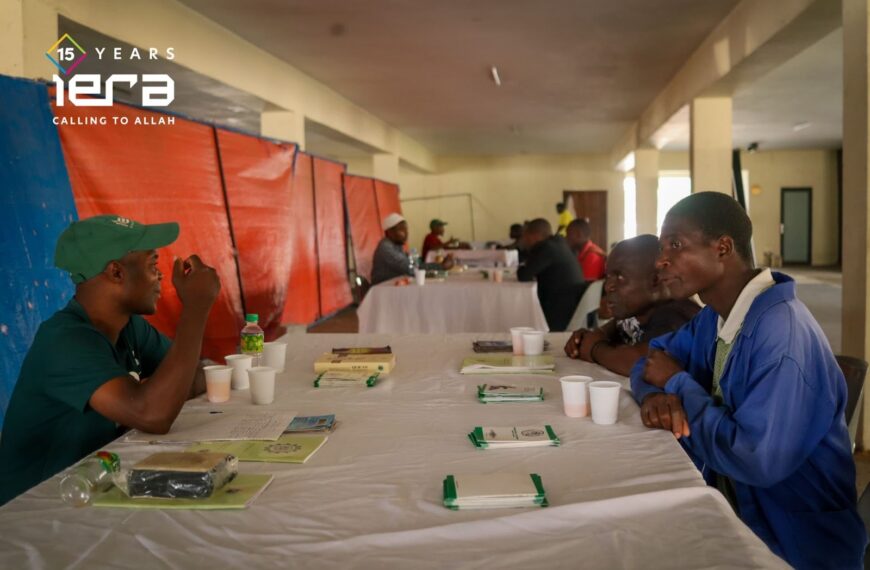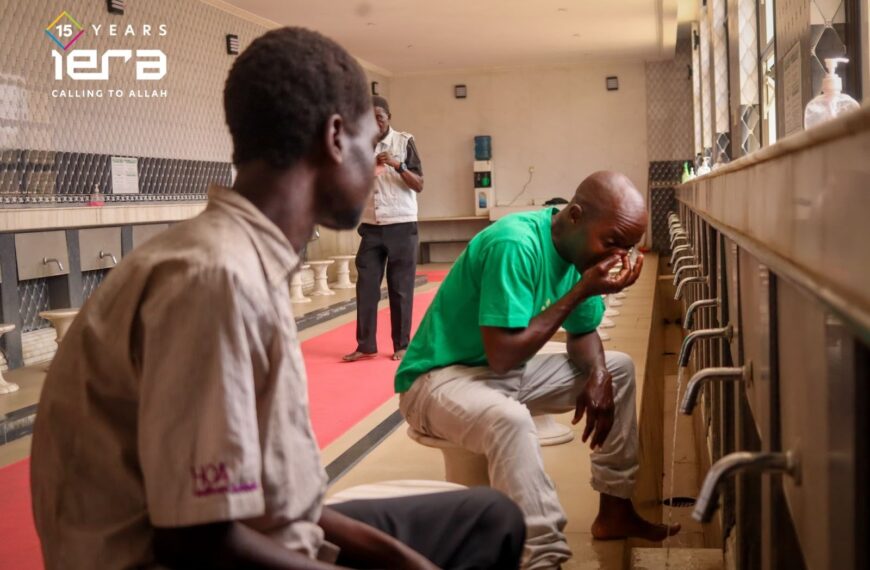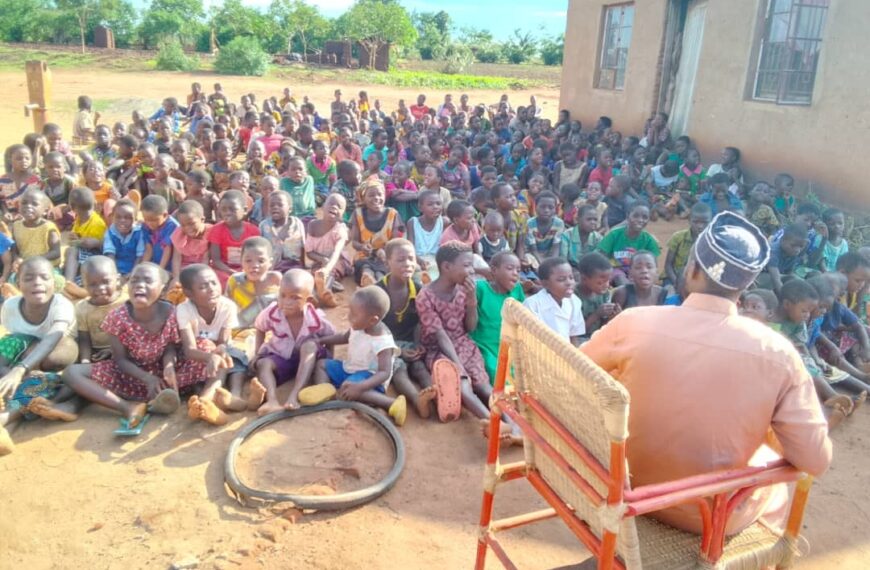In the vibrant pulse of Uganda’s cities, where life’s burdens can weigh heavily on the soul, lived a woman named Nakimuli Magret.
At 76 years of age, she carried with her a history woven with hardship and heartbreak—marked most notably by a long struggle with alcohol. It was a habit born not of indulgence, but of survival—her way of coping with the trials life had thrown her way.
Raised in a Catholic household, Magret had long searched for inner peace, yet never quite found the spiritual refuge she yearned for.
Though many had tried to guide her—including born-again pastors who offered passionate sermons and emotional worship—their ways never touched her deeply. The loudness and emotional intensity only left her feeling more distant. Yet there was something quietly compelling about the Muslims she encountered in her community. She had always admired their strong sense of unity, discipline, and especially their brotherhood—a bond that seemed genuine and rooted in something greater than the self.
One day, her life took a divine turn.
A team of outreach workers from iERA Uganda—du’āts, as they are called—visited her home. They didn’t come with judgment or condemnation, but with gentleness, listening ears, and a heartwarming message of hope. They spoke softly but sincerely about the Oneness of God—the Creator of the heavens and the earth—and the purpose of life: to worship Him alone.
They told her that Islam offers not just faith, but transformation. That it is a way of life that brings structure, community, and above all, closeness to God. They explained that Muslims worship Allah as He commands—with clarity, sincerity, and humility—just as the Prophets did.
But it was when they touched on the subject of alcohol that something within Magret stirred. The du’āts explained that Islam firmly prohibits intoxicants, not to restrict joy, but to protect the mind, body, and soul. That Islam doesn’t just offer rules—it offers healing. This struck a deep chord in her heart. For the first time, she saw the possibility of breaking free from a lifelong cycle and finding real, lasting peace.
Moved, she asked the question that had long been resting in her soul:
“If I convert to Islam, will it truly bring me closer to God and the kind of brotherhood I’ve always seen among Muslims?”
With smiles and unwavering assurance, the du’āts replied:
“Yes, absolutely. Islam will bring you nearer to your Creator and welcome you into a family that spans the world.”
In that moment, Magret’s heart opened wide. She didn’t hesitate. With joy in her voice and tears in her eyes, she asked to be guided in declaring the Shahadah—the testimony of faith. And so, at 76, she embraced Islam, taking the name Fatuma—a new identity, a new chapter, a new life.
Radiating peace and hope, she promised to join her fellow Muslims at the mosque for Friday prayer, eager to walk hand in hand with her new community. No longer a seeker wandering alone, Fatuma had found her path—rooted in faith, anchored in purpose, and surrounded by the very brotherhood she had long admired.
Fatuma’s story is not just a tale of conversion—it is a profound reminder that it is never too late to change, to heal, and to return to the Creator. Her journey speaks to the mercy of Allah, who opens hearts in the perfect moment, and to the power of Islam to bring serenity where there was once only struggle.





